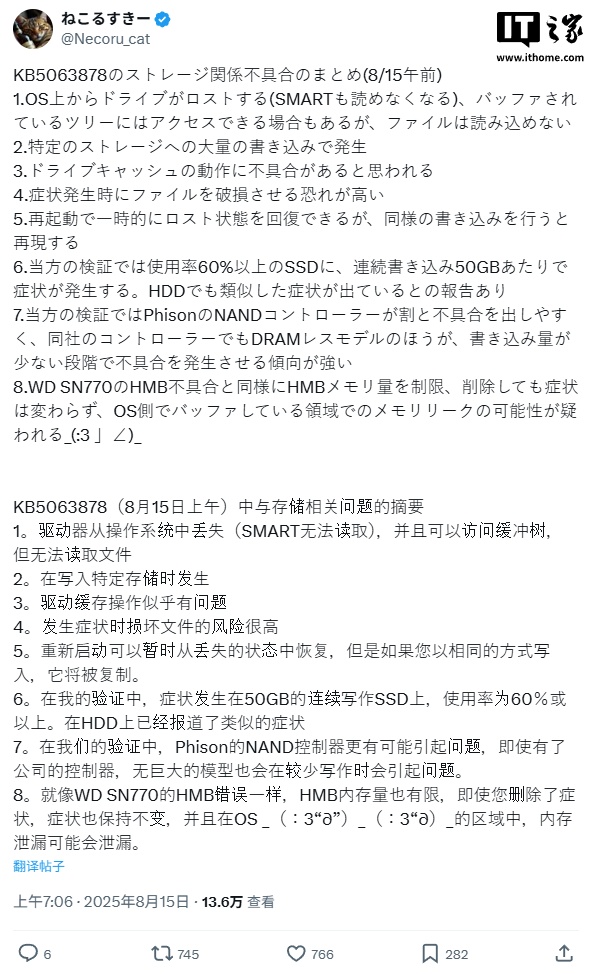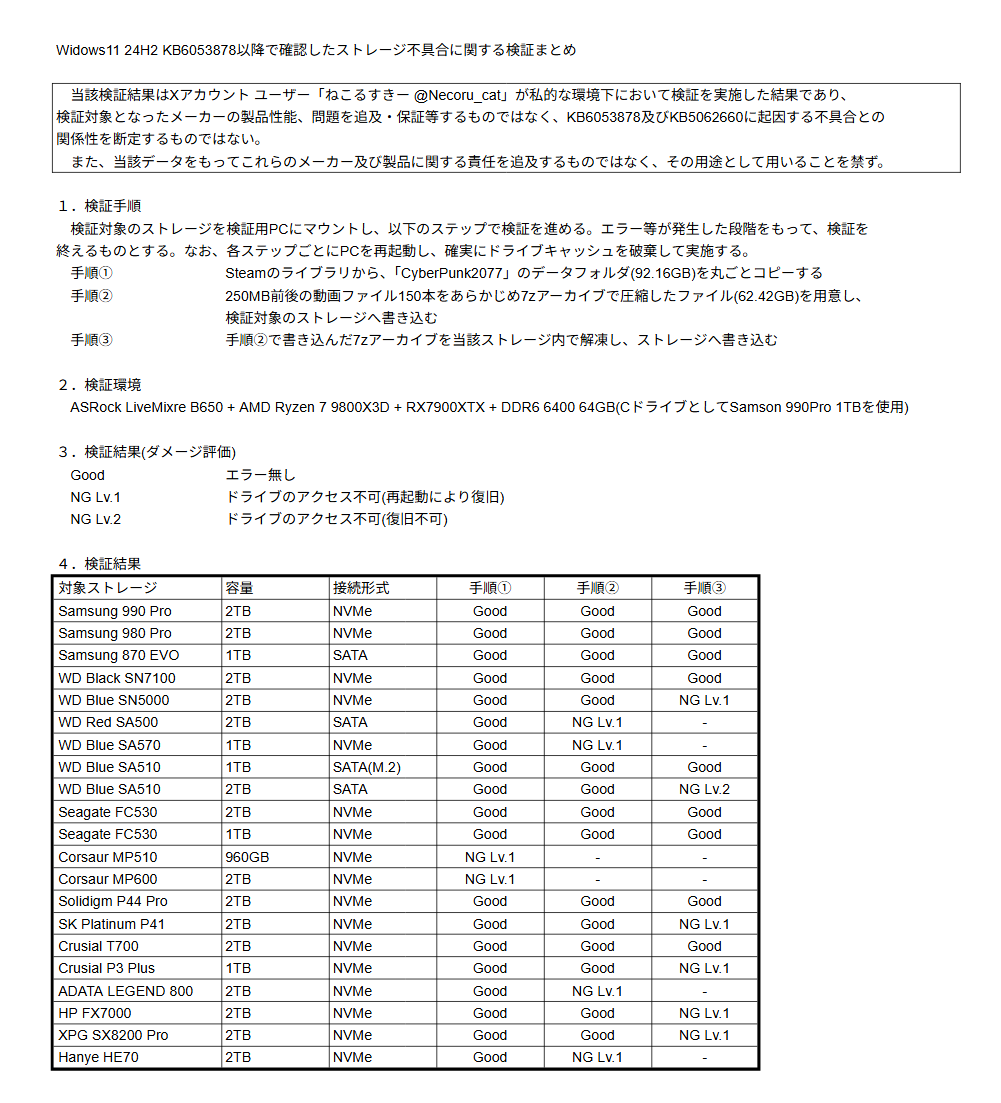Microsoft released a very important Defender update last week, which is available for Win10 (KB5063709 / KB5063877 / KB5063871 / KB5063889) and Win11 (KB5063878, KB5063875).
X user @Necoru_cat discovered that KB5063878 can cause severe failures of solid-state drives (SSDs) and mechanical hard drives (HDDs) under certain circumstances, with some devices not being recognized by the system after large amounts of data are written.

He said that when he updated Cyberpunk 2077 after installing the update, he found that his storage device was faulty.
Tests show that when about 50GB of continuous writes are made and the controller usage exceeds 60%, some NVMe SSDs and HDDs may fail, causing the hard disk to disappear and the corresponding SMART monitoring data cannot be read by the system. After a system reboot, the hard drive can temporarily resume display, but the problem will recur under similar load and there is a risk of file corruption.
Further analysis shows that this problem is more prominent on SSDs equipped with Phison’s main control, especially models without DRAM cache, and some enterprise-class HDDs have also been exposed to similar symptoms during high-intensity writes. IT House attaches some of the currently known SSD models that may be affected:
- Corsair Force MP600
- SSD with Phison PS5012-E12 controller
- KIOXIA EXCERIA PLUS G4
- Fikwot FN955
- SanDisk Extreme M.2 NVMe 3D SSD

There have been reports speculating that the issue may be related to the driver cache subsystem and suspecting a memory leak bug in the Windows operating system cache area. The symptoms are similar to the previous host memory buffer (HMB) issue of the Western Digital WD SN770, but it still cannot be resolved after disabling HMB. Microsoft claimed to have fixed a similar issue in October 2024, but users were still affected in June 2025.
At present, the issue has not been confirmed on a large scale worldwide, mainly by Japanese PC installation enthusiasts and related users. Some comments indicate that there may be regional characteristics. Microsoft and SSD vendors have not yet responded to this. Therefore, until the issue is further confirmed, users using Phison’s main SSD or affected models of SSD should avoid long-term high-capacity write operations to reduce the corresponding risk.